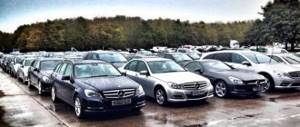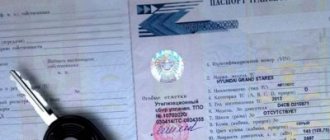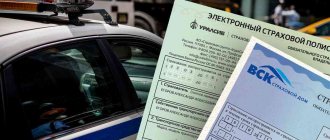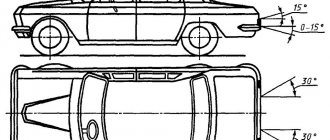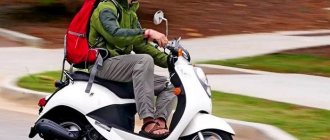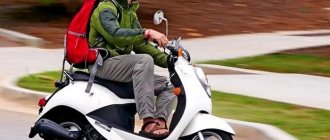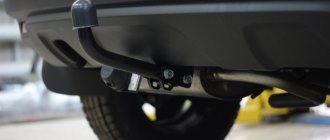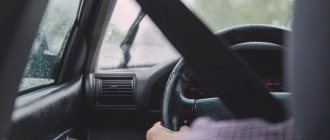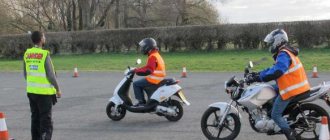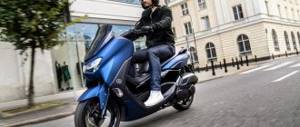Latest news about 2019-nCoV – what is prohibited?
Let's first learn about the most important thing in operational changes in legislation, what is prohibited and what is allowed for citizens of our country as part of the fight against coronavirus. Please note that such bans and other measures are taken mainly by the constituent entities of Russia - individual regions and cities, and therefore clarification is necessary specifically for your stay. Although, there are changes at the federal level.
It is important to understand that in different regions of Russia the situation with bans may be different - in some places it may simply be a recommendation from the authorities, and in others it may be a punishable restriction. Therefore, we strongly advise you to find out the latest information in primary sources, including the official media of your region, as well as legal information in the databases of Russian legislation, for example, on Consultant Plus.
- Due to the obstacles to the spread of COVID-19, most cities do not allow large numbers of people to gather for events . This applies to various kinds of meetings of clubs with interests in cars or motorcycles, and sports car events. As of May 22, 2021, this is relevant for Moscow, St. Petersburg and most other cities. But specific figures on the maximum amount allowed for gathering in one place are not reported. You can find out specifically about the situation in your locality on official government websites or official media.
- Travel to most countries in Europe and Asia by car - a number of these countries have simply closed their borders to free entry as part of the fight against the spread of coronavirus infection.
- Those already sick with coronavirus, as well as those entering from abroad, were prohibited from leaving home for the duration of treatment or, accordingly, self-isolation and contact with people. Of course, you can’t drive a car in this case.
Concepts of high alert mode, self-isolation, quarantine
Quarantine
Let's start with the concept of quarantine . It is widely used in everyday life, but in fact it is not used in regulatory documents. That is, there are no restrictions related to quarantine.
Self-isolation
Self-isolation. When communicating, self-isolation refers to the entire range of restrictions introduced at the end of March 2020. However, the decree of the Moscow Mayor talks about two options for self-isolation, which are more stringent when compared with the requirements for other citizens.
Option 1. Self-isolation for 14 days for citizens:
- arrived from foreign trips;
- living together with those who have traveled abroad;
- in respect of which decisions of sanitary doctors on isolation have been adopted.
These issues are discussed in paragraphs 9.2 and 9.3 of the decree of the Moscow Mayor:
9. Oblige citizens:
9.2. Arriving from the People's Republic of China, the Republic of Korea, the Italian Republic, the Islamic Republic of Iran, the French Republic, the Federal Republic of Germany, the Kingdom of Spain, other member states of the European Union, the Republic of Serbia, the Republic of Albania, the United Kingdom of Great Britain and Northern Ireland, the Republic of North Macedonia, Montenegro, the Principality of Andorra, the Kingdom of Norway, the Swiss Confederation, Iceland, the Principality of Monaco, the Principality of Liechtenstein, the Republic of Moldova, the Republic of Belarus, Ukraine, Bosnia and Herzegovina, the Vatican, the Republic of San Marino, the Republic of Croatia, the United States of America, in addition to the measures provided for in paragraph 9.1 of this decree, ensure self-isolation at home for a period of 14 days from the date of return to the Russian Federation (do not attend work, study, minimize visits to public places).
9.3. Those living together during the period of isolation with the citizens specified in paragraph 9.2 of this decree, as well as with citizens in respect of whom decisions of sanitary doctors on isolation have been adopted, must ensure self-isolation at home for the period specified in paragraph 9.2 of this decree, or for the period specified in the decrees of sanitary doctors.
In this case, you need to pay attention that clause 9.2 refers to the need to minimize visits to public places .
Option 2. Self-isolation for risk groups from March 26 to June 9, 2021 (cancelled by Decree of the Moscow Mayor No. 68-UM dated June 8, 2021).
10. From March 26, 2021:
10.1. Oblige citizens over the age of 65 to comply with the self-isolation regime, as well as citizens with diseases specified in Appendix 5 to this decree, with the exception of cases of leaving their place of residence (stay) for the purpose of walking and engaging in physical education and sports in the manner prescribed by Appendix 8 to this decree. The self-isolation regime must be ensured at the place of residence of these persons or in other premises, including residential and garden houses.
According to the decree of the Moscow Mayor, the risk group includes:
- People over 65 years of age.
- People suffering from the diseases listed below.
Appendix 5. List of diseases requiring self-isolation
1. Disease of the endocrine system - insulin-dependent diabetes mellitus, classified in accordance with the International Classification of Diseases - 10 (ICD-10) with a diagnosis of E10. 2. Respiratory diseases from the following: 2.1. Other chronic obstructive pulmonary disease classified according to ICD-10 under diagnosis J44. 2.2. Asthma classified according to ICD-10 by diagnosis J45. 2.3. Bronchiectasis, classified according to ICD-10 with diagnosis J47. 3. Disease of the circulatory system - cor pulmonale and pulmonary circulation disorders, classified in accordance with ICD-10 according to diagnoses I27.2, I27.8, I27.9. 4. The presence of transplanted organs and tissues classified in accordance with ICD-10 according to diagnosis Z94. 5. Disease of the genitourinary system1 - chronic kidney disease stages 3-5, classified in accordance with ICD-10 according to diagnoses N18.0, N18.3 - N18.5. 6. New growths from number 2: 6.1. Malignant neoplasms of any localization1, including independent multiple localizations, classified in accordance with ICD-10 according to diagnoses C00 - C80, C97. 6.2. Acute leukemias, high-grade lymphomas, relapses and resistant forms of other lymphoproliferative diseases, chronic myeloid leukemia in the phases of chronic acceleration and blast crisis, primary chronic leukemias and lymphomas1, classified in accordance with ICD-10 according to diagnoses C81 - C96, D46. 1 During self-isolation, it is allowed to visit a medical organization regarding the underlying disease.
2 Self-isolation does not apply to patients assigned to the third clinical group (oncology).
If you carefully study the above quote, you will notice that with the second option of self-isolation for some diseases, it is allowed to visit medical organizations for the underlying disease.
Option 3. Self-isolation for patients with a new coronavirus infection (2019-nCoV), for citizens with manifestations of acute respiratory viral infections or acute respiratory infections, as well as for those living with them from April 22, 2021 (clauses 12.5 and 12.6 of the Decree of the Moscow Mayor).
If a person has signs of ARVI, is sick with a coronavirus infection, or lives with a sick person, then such a person can drive a personal car only to receive medical care in a medical organization. In this case, an appropriate pass must be issued.
Summarizing the section on self-isolation, it must be said that the regulatory document does not make it possible to unambiguously understand in what cases and why you can leave your living quarters. In this regard, I propose to assume that if for some reason a driver ends up in the self-isolated group, then should not drive a car or simply leave his home . At least, this is the conclusion that explanations from officials are pushing towards.
High alert mode
By high alert we mean a situation that applies to absolutely all drivers (including those who are in self-isolation).
12. Oblige:
12.3. Citizens should not leave their place of residence (stay), except in cases of seeking emergency (urgent) medical care and in cases of other direct threat to life and health, in cases of traveling to (from the place) of carrying out activities (including work) that have not been suspended in in accordance with this decree, carrying out activities related to movement within the territory of the city of Moscow, if such movement is directly related to the implementation of activities that are not suspended in accordance with this decree (including the provision of transport and delivery services), as well as following to the nearest place of purchase of goods, works, services, in respect of which a decision has not been made (cancelled) to suspend visits by citizens, walking pets (it is not recommended to leave the territory limited by a radius of two kilometers from the place of residence (stay), removal of waste to the nearest places where waste accumulates, as well as cases of leaving the place of residence (stay) for the purpose of walking and engaging in physical education and sports in the manner prescribed by Appendix 8 to this decree.
The restrictions established by this paragraph do not apply to cases of medical care, the activities of law enforcement agencies, bodies for civil defense and emergency situations and their subordinate organizations, supervisory bodies in the field of consumer rights protection and human well-being, and other bodies in terms of actions directly aimed at protecting the life, health and other rights and freedoms of citizens, including combating crime, protecting public order, property and ensuring public safety.
In high alert mode, it is prohibited to leave your apartment (house) in all cases, except:
- seeking emergency medical care;
- for movement to the place of work, unless work must be suspended in accordance with the decree;
- for movement while performing work, unless the work must be suspended;
- to go to the nearest place of purchase of goods, works, services, the sale of which is not limited;
- walking pets at a distance of no more than 2 km from the house (until May 27, 2021 - 100 meters from the house);
- removing waste to the nearest container site;
- walks and physical education and sports (from June 1, 2020).
Moreover, the decree does not prohibit driving to the desired location by car in the cases listed above. Naturally, this does not apply to walking animals and taking out garbage; these operations are performed on foot. But in other situations you can use a car .
However, the list of situations requires clarification. The fact is that many media, in order to make the news shorter, write that you can only leave the house to buy groceries. In fact, the list of situations is much wider. I recommend that you study paragraph 3.2 in full, and below will be comments on this paragraph:
3. Temporarily suspend:
3.2. From March 28, 2021:
3.2.1. The operation of restaurants, cafes, canteens, buffets, bars, snack bars and other public catering establishments, with the exception of take-out services without citizens visiting the premises of such enterprises, as well as the delivery of orders.
This restriction does not apply to canteens, buffets, cafes and other catering establishments that provide meals for employees of organizations.
3.2.2. The operation of beauty salons, cosmetics, spa salons, massage parlors, solariums, baths, saunas and other facilities in which similar services are provided that require the in-person presence of a citizen, with the exception of services provided remotely, including with the condition of delivery.
3.3. The work of clubs and sections of the Moscow Longevity program, the organization of recreation for citizens and other similar events carried out at the expense of the budget of the city of Moscow, the conduct of other leisure activities in social service centers for the population, as well as the work of institutions of the library network of the city of Moscow and cultural and leisure institutions . The procedure for rescheduling previously confirmed events within the framework of organizing leisure for citizens and other similar events or replacing them with compensation is determined in accordance with legal acts establishing the procedure for organizing such recreation. At the same time, the organization of recreation for citizens and other similar events, including the Moscow Shift program, is postponed until no earlier than August 1, 2020.
3.4. From March 21, 2021, students will visit educational organizations providing general and additional education, providing sports training, as well as professional educational organizations implementing secondary vocational education programs, ensuring the implementation of educational programs of general and secondary vocational education using e-learning and distance learning technologies in the manner determined by the administration of the educational organization. At the same time, if there is an appropriate decision of parents or other legal representatives, provide for students in grades 1-4 inclusive the work of duty groups of no more than 12 students. Ensure compliance with the sanitary regime in these groups.
At the same time, training conducted using e-learning technologies and distance educational technologies from May 18, 2021 to May 31, 2021 is carried out with the aim of summarizing and repeating previously studied material in free attendance mode (except for students in grades 9 and 11) by decision parents of students.
Annual marks are issued to all students no later than May 15, 2020.
3.5. Visits by citizens to city cemeteries specified in Appendix 3 to the resolution of the Moscow Government of April 8, 2008 N 260-PP “On the condition and measures to improve funeral services in the city of Moscow”, with the exception of cases of applying for registration of burial services and participation in the burial (burial).
3.6. Carrying out reconstruction, redevelopment, repair work in residential premises in an apartment building or repair work in non-residential premises that do not belong by right of common shared ownership to the owners of premises in an apartment building, as well as work on major and current repairs of common property in an apartment building, resulting in a violation of silence and peace of citizens.
In this case, the work specified in this paragraph is allowed during the periods from 9:00 a.m. to 11:00 a.m., from 5:00 p.m. to 7:00 p.m., with the exception of Saturdays, Sundays, as well as non-working holidays established by federal legislation.
It is also allowed to carry out urgent repair work that disturbs the peace and quiet of citizens, carried out in emergency circumstances, as well as those related to ensuring the personal and public safety of citizens or the functioning of the life support of the population.
4. Temporarily suspend from April 13, 2021:
4.1. Visits by citizens to territories, buildings, structures, structures (premises in them), where the activities of organizations and individual entrepreneurs are carried out, specified in Appendix 3 to this decree, taking into account the features established in it. ... 4.2. Provision of services for short-term car rental (car sharing services), services for transporting passengers on order, except for the cases established by this paragraph, as well as taxi services, with the exception of taxi services provided by carriers licensed to carry out activities for the transportation of passengers and luggage by passenger cars taxi within the city of Moscow and (or) the Moscow region.
Until May 27, 2021, of all retail stores was prohibited , with the following exceptions (clause 3.2.2):
- pharmacies;
- communication shops;
- stores selling pet products;
- shops selling food products (food);
- shops selling essential goods (sanitary mask, hand sanitizer, wet wipes, dry wipes, toilet soap, laundry soap, toothpaste, toothbrush, toilet paper, sanitary pads, washing powder, baby diapers, matches, candles, diaper for a newborn, baby shampoo, baby diaper rash cream, feeding bottle, pacifier, gasoline, diesel fuel, liquefied natural gas).
In addition, the work of some organizations providing services (clauses 3.2.1 - 3.4; from June 9, 2021, the work of beauty salons and beauty salons is allowed), visiting city cemeteries (clause 3.5 - from April 9 to June 9, 2020), holding repair work in apartment buildings (clause 3.6 - from April 28, 2021)
Also, from April 13 to June 9, 2021, it was prohibited to use car sharing (from May 25, car rental was allowed for a period of at least 5 calendar days). From April 13, it is prohibited to visit organizations engaged in the types of activities specified in Appendix No. 3:
1 Activities of water transport (except for cargo transportation and special watercraft) 2 Activities for the provision of food and drinks (except for take-out services without citizens visiting the premises of such enterprises, as well as delivery of orders; canteens, buffets, cafes and other food establishments that organize meals for employees of organizations) 3 Production of films, videos, publication of sound recordings and notes 4 Operations with real estate 5 Professional, scientific and technical activities, with the exception of activities aimed at developing a treatment for the new coronavirus infection (2019-nCoV) 6 Activities in the field of law ( excluding legal, notarial activities) and accounting, management consulting 7 Advertising activities and market research 8 Other professional scientific and technical activities 9 Activities for technical inventory of real estate 10 Renting and leasing 11 Employment and personnel selection activities 12 Tourism activities agencies and other organizations providing services in the field of tourism 13 Educational activities (except for cases established by this decree) 14 Activities for organizing and conducting gambling and betting, organizing and conducting lotteries 15 Activities in the field of sports, recreation and entertainment (for except for cases established by this decree) 16 Activities of public organizations (except for volunteer activities) 17 Activities for the provision of other personal services (except for laundry and dry cleaning)
That is, if you need to visit a place, you need to carefully study the above paragraphs of the regulatory document and understand whether its work has been suspended or not. If, in accordance with the decree, the organization can continue to operate, then you can contact it. This includes getting there by car .
Note. It is important to understand that even if a company is not required to suspend work by law, its manager can independently make such a decision. Therefore, before any trip you should call and find out if the organization is open.
What is prohibited for motorists?
Now we will take a closer look at certain restrictions for drivers, which in one way or another relate specifically to the right to travel by car, in connection with coronavirus infection.
New restrictions on movement in Moscow and a number of regions
Section updated 04/07/2020
Due to the growing number of cases, the mayor of Moscow decided to restrict the movement of citizens, including by car, by issuing a corresponding Decree. There are exceptions when city citizens are allowed to leave their homes.
We are talking about document dated March 29, 2021 under number 34-UM and its clause 9.3. This Decree introduces the obligation of citizens to stay at home, with the exception of a number of cases.
It is better to see the list of these cases from the official interpretation of the document:
9. Oblige: …. 9.3. Citizens should not leave their place of residence (stay), except in cases
- requests for emergency (emergency) medical care and cases of other direct threat to life and health,
- cases of traveling to the place (from the place) of carrying out activities (including work) that are not suspended in accordance with this decree, carrying out activities related to movement within the territory of the city of Moscow, if such movement is directly related to the implementation of activities that are not suspended in accordance with this decree (including the provision of transport and delivery services),
- as well as going to the nearest place of purchase of goods, works, services, the sale of which is not limited in accordance with this decree,
- walking pets at a distance not exceeding 100 meters from the place of residence (stay),
- removal of waste to the nearest waste accumulation site.
The restriction will be introduced on March 30 and will remain in effect until an indefinite period.
Meanwhile, rumors are actively spreading online about a new fine for violating self-isolation due to coronavirus. Allegedly, citizens on the streets of Moscow will be fined as much as 50 thousand rubles. This is not entirely true!
In fact, there are changes to the Administrative Code, they have been adopted, but there is no talk of a 50 thousand ruble fine for citizens. And we are talking about Federal Law No. 99-FZ of April 1, 2021.
The Code of Administrative Offenses has Article 6.3, which, from its old version, provides for a fine of 100 to 500 rubles for citizens for violating anti-epidemiological rules. Changes are being made to this article, and they prescribe much greater penalties in situations of threat of the spread of the disease.
The new version provides for much larger fines for violations in the field of sanitary and epidemiological well-being. In particular, two more new parts of the article are being introduced that regulate penalties for violations, including anti-epidemic measures, during the period of threat of the spread of the disease.
According to the new law, the fine for citizens, if such a violation does not result in harm to health or death of other people, ranges from 15 to 40 thousand rubles under Part 2 of Article 6.3. But, there is a third part - if such a violation led to the death or harm to the health of one or more people, then the minimum sanction includes a fine of 150,000 rubles. In addition, in certain situations, the violator may face criminal liability.
The Federal Law itself, introducing these changes, comes into force on the date of its official publication, this is indicated in Article No. 2 of this Federal Law. And publication occurred on April 1, 2021.
But there is one more rule that is changed by the above Federal Law. A new article 20.61 is being introduced, which provides for penalties for violating the rules of behavior during an emergency or the threat of one. You can see the official interpretation and all sanctions measures here.
Is it possible to travel between cities?
As we have already indicated above, in most regions there are bans on leaving home - therefore, on driving vehicles both within cities and in intercity traffic.
But what to do if, for one reason or another, you need to go to another city in Russia, crossing one or more regions of the country? In this case, you will have to adhere to the restrictions and rules that have been introduced in the relevant territories. Moreover, please note that the rules for driving a car may apply separately and in populated areas, and not just within one region.
The Ministry of Internal Affairs provided clarification on this matter. And the main subtleties and recommendations are as follows:
- There are no special direct restrictions on the movement of transit transport between cities, but there are general restrictions, and each region has its own,
- and therefore you will have to find and take into account information on the current regulations in the cities through which you are going to pass,
- at the same time, it is advisable to obtain such data immediately before visiting the region, since restrictions are updated and change very often,
- in addition to your passport and documents for the car, it is also advisable to have a certificate stating that you are not sick with coronavirus, although this point is not regulated as mandatory, but can be established as such in any region,
- In addition, you may also need a certificate of temporary registration and an employment contract, as well as a certificate from your place of work.
Avoid communication with traffic police by pretending to be sick
A meme is actively spreading online with a piece of paper taped to the glass of a vehicle with the inscription “I am sick with coronavirus” when the driver is stopped by a traffic police officer.
This is what it looks like:
If you decide to use this method, even just for fun and, especially, as a life hack, then keep in mind that the consequences may be somewhat worse than you think.
Let's track the legislative component of what a traffic police inspector should do if he suspects that the driver is sick:
- firstly, if you suspect not only a coronavirus infection, but any disease in general, a traffic police officer is obliged to remove the driver from driving, since according to traffic rules it is forbidden to drive a car in any painful condition; But that is not all,
- according to subparagraph 7 of part 1 of article 12 of the Federal Law on Police, the traffic police inspector is obliged to take measures to protect public order during quarantine measures during epidemics,
- According to the corresponding changes in 2021, coronavirus infection has been added to the official list of dangerous diseases, and this is what it means,
- Clause 2 of Part 9 of the Federal Law on the Fundamentals of Health Protection prescribes that in the presence of such diseases, medical intervention is possible without the consent of the patient.
Thus, if you tell a traffic police inspector that you are sick with coronavirus, he is obliged to take you to the hospital for diagnosis and/or first aid. And you definitely won’t be able to avoid communicating with a police officer in this way.
What is possible and what is not? Instructions will help you avoid fines during quarantine
In Moscow and the region, there are restrictions on travel by personal transport, police officers check digital passes, and cameras automatically issue huge fines. In the conditions of quarantine confusion, drivers have a lot of questions about how to drive and what is better not to do now. Autonews.ru selected the most popular questions and tried to understand them in detail.
Is it possible to drive a car?
You can, but only with a pre-issued digital pass. The easiest way for Moscow residents to do this is on the website nedoma.mos.ru, for residents of the Moscow region - through the public services portal or the “State Services STOP Coronavirus” application. In Moscow, there are four types of passes: for workers (issued until the end of the month), for driving with an official ID, for visiting a medical institution (for one day), as well as for a one-time trip for other purposes (for one day, but not more than twice in Week). The Moscow region service offers seven options, but those related to traveling by car are similar to those in Moscow.
Quarantine April 22, 2021 “Not everyone knows about the changes.” Drivers face unexpected fines
Articles April 15, 2021 “There is no money, but I’m getting fines for everything.” First day with passes
The system will require passport data, vehicle registration number, company name and tax identification number or service ID number. For personal trips, you will need to indicate the purpose of the trip and the route. In response, the system will issue a 16-digit code of numbers and letters, as well as a graphic QR code with the same information. It is needed to speed up checks - a police officer using a service smartphone can quickly scan a QR code instead of manually entering 16 characters.
Is it possible to travel without a pass?
No. Traveling without a pass is punishable by a fine of 5,000 rubles, and from April 22, cameras in automatic mode can also issue a fine. And if you violate a previously received order to stay at home (for example, after returning from another country), then your car may be sent for forced disinfection. Only freight transport is allowed to drive without passes in Moscow from 22:00 to 06:00.
Formally, doctors, military personnel, law enforcement officers, journalists and other holders of state-issued IDs should not receive passes. However, to travel by car, they will still have to issue a pass, even with the license plate of a company car. A police patrol will let you through with an official ID even without a pass, but the traffic camera will still issue a fine for a car that is not in the pass database.
Is it possible to drive a car and where?
As of May 22, 2021, the ban on traveling by personal car, except in exceptional cases, is in effect in Moscow, Tatarstan, as well as in a number of other cities and regions of our country. You can find up-to-date information in the official media and government websites of your locality.
In most cities there are no restrictions on movement unless you are sick with coronavirus infection. You can freely travel to any places within such cities, if they are not restricted for entry by other regulations and relevant orders or decrees of the heads of constituent entities of the Russian Federation.
There is a Decree of Rospotrebnadzor on the self-isolation regime, but it applies only to those persons who arrived or flew in from abroad.

